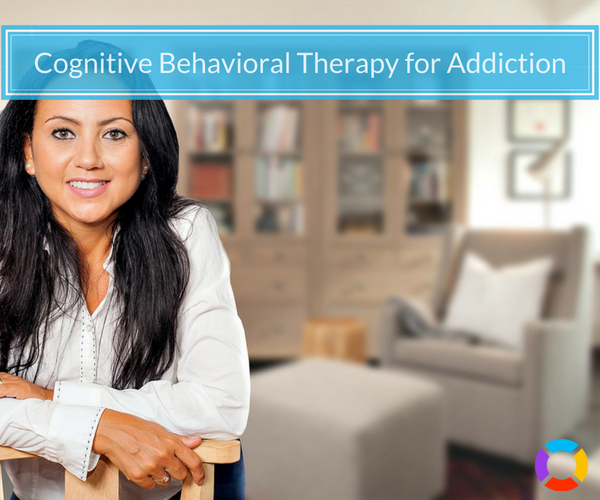Cognitive Behavioral Therapy

Cognitive behavioral therapy (CBT) is one of the most frequently used treatments for addiction. It was originally developed for alcoholics, but is now helpful for almost every addiction type. Though it is not for everyone, it is one of the most successful programs for addiction treatment.
What Is Cognitive Behavioral Therapy?
Cognitive behavioral therapy is a type of therapy that is effective for most addiction syndromes. It can be useful for both adult and adolescent patients. According to the National Institute on Drug Abuse, the strategies learned in CBT help patients stay sober and gain better life skills.
CBT is an effective program because it can easily be molded to the needs of the patient and their addiction. This therapy is ideal for those with co-occurring mental disorders, as it can be modified to deal with both issues. According to the Psychiatric Clinics of North America, cognitive behavioral therapy can involve both individual and group treatments. Some common options include motivational interventions, contingency management, and Relapse Prevention (RP).
How Does A Cognitive Behavioral Therapy Treatment Plan for Substance Abuse Work?
CBT helps patients develop healthy behaviors and change maladaptive patterns. The program is focused on the learning processes of the brain.
- Strategies include learning to identify problematic behaviors using hypothetical scenarios. When a patient considers how they’d react in a situation, they can see the consequences and learn how to act differently.
- CBT for addiction recovery is highly focused on self-control. Relaxation and control techniques help patients cope with issues like cravings.
- Patients learn to recognize and avoid their triggers. If they cannot be avoided, they learn how to deal with them in a safe way that does not lead to relapse.
- Self-monitoring is practiced, an act that asks patients to check in with themselves. If something is wrong, it forces them to recognize the issue instead of ignoring it.
- The benefits and drawbacks of drug abuse are discussed. It might feel good for a moment, but the patient must consider what can happen to their health, professional and personal lives, and their wellbeing.
- Anger management and emotion regulation are essential parts of this program, especially for teens.
- All of these lessons can be applied to those with mental illnesses, which is why CBT is so effective for addiction treatment. Many people struggle with both addiction and mental disorders like depression, anxiety, or schizophrenia. Co-occurring disorders must be treated together so that one doesn’t stop the progress of the other.
Patients will learn to control their reactions over time. When someone starts using drugs, they learn that this makes them feel a certain way. And as they continue to use more and more, this changes the way their brain works. Cognitive behavioral therapy aims to reverse this change.
When Should Cognitive Behavioral Therapy Start?
CBT should start as soon as the patient feels well enough to focus on the program. It can even start during detox treatment. This can be helpful, as it will make the transition from detox to rehab much easier.
People who start out in detox may need to be stabilized before they begin cognitive behavioral therapy. For example, patients with drug-induced psychosis may need a few weeks of stabilization before they can focus on such a program.
How Long Does CBT Last?
Cognitive behavioral therapy for addiction usually requires at least 16 sessions. Longer treatment times are often advised. For those in detox, therapy may last as long as their program. CBT should take as long as necessary in order to produce positive results. A proper assessment can determine how long the program should be.
According to a study in the medical journal of the Psychiatric Clinics of North America, many addicts were studied who received CBT over different periods of time. Almost all of them saw at least some benefits when it came to their overall recoveries.
Where Can I Find Cognitive Behavioral Therapy?
Most treatment facilities offer a cognitive behavioral therapy treatment plan for substance abuse. This isn’t surprising since it is one of the most common treatments for addiction. The type of CBT offered will be based on the facility, the patient, and their substance use disorder.
Sources
- National Institute on Drug Abuse. (2018). Principles of Drug Addiction Treatment: A Research-Based Guide (Third Edition)- Cognitive-Behavioral Therapy (Alcohol, Marijuana, Cocaine, Methamphetamine, Nicotine).
- Psychiatric Clinics of North America. (2010). Cognitive-Behavioral Therapy for Substance Use Disorders.
- Experimental Neurobiology. (2017). Drug Abuse and Psychosis: New Insights into Drug-induced Psychosis.

